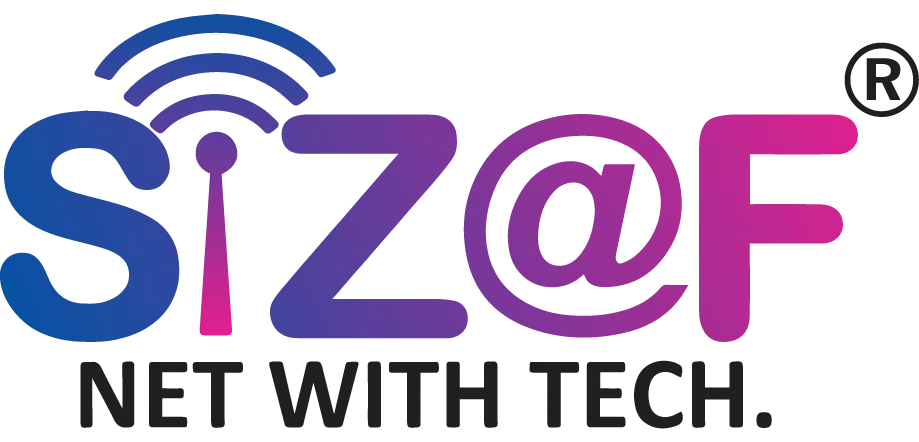The Future Is at the Edge: Why Malaysian SMEs Can’t Ignore It
Think about this: In Kuala Lumpur, you own a food supply company. Every delay in your data transfer, from delivery apps to warehouse sensors, results in lost revenue, dissatisfied customers, and wasted time. Rather than transmitting all of that data to a remote cloud server, what if the processing took place close to your operations, at the “edge” of your network? Edge computing, as it is known, is rapidly changing the game for SMEs in Malaysia.
These days, edge computing is more than just a catchphrase. It’s a useful solution that enables companies to process data locally, lowering latency, increasing productivity, and guaranteeing quicker decision-making. The emergence of IoT devices, analytics driven by AI, and real-time applications has brought Malaysia’s digital ecosystem closer to the edge than it has ever been.
Describe Edge Computing in Brief.

The fundamental idea behind edge computing is to move storage and processing closer to the point of data generation. Smart routers, gateways, and local servers are examples of edge devices that manage a portion of the workload rather than depending entirely on central data centers or remote cloud servers.
To SMEs, this implies:
- quicker reaction times (in sectors like e-commerce or fintech, milliseconds count).
- decreased bandwidth consumption, which helps companies with narrow profit margins save money.
- improved dependability, despite erratic internet access.
Consider it a step up from making a “long-distance call” each time you need information to having the answers right next door.
The Immediate Need for Edge Computing by Malaysian SMEs

1. Instantaneous Business Growth Insights
From retail stores in Penang to logistics companies in Port Klang, Malaysian SMEs are becoming more and more data-driven. With edge computing, companies can gain a competitive edge by instantly analyzing payment data, supply chain trends, and customer behavior.
2. Assisting Malaysia’s MyDIGITAL (Digital Economy Blueprint)
Digital adoption is being strongly pushed by the Malaysian government. With MyDIGITAL initiatives and the rollout of 5G, edge computing fills the gap and enables SMEs to scale intelligent solutions without becoming totally reliant on the cloud.
3. Cutting Down on Latency in Vital Functions
Delays are unacceptable for fintech startups, healthcare services, and even online learning platforms. Edge processing guarantees smooth experiences, whether it’s quicker online payments or easy video conferencing for Sabah’s rural students.
4. Economical for small businesses
Large cloud costs are a problem for SMEs more often than not. By processing data locally, edge solutions enable them to reduce needless cloud usage while still utilizing cloud scalability when required.
Malaysian Real-World Edge Computing Applications

🔹 Smart Retail
Real-time sales trend monitoring, digital payment system management, and customer foot traffic tracking are all possible for retail SMEs with edge-powered analytics.
🔹 Production and Logistics
Production lines can prevent expensive downtime by using edge devices to quickly identify equipment problems. Real-time GPS analytics are another tool that logistics SMEs can use to track fleet routes.
🔹 E-payments and fintech
The e-wallet ecosystem in Malaysia, which includes Touch ‘n Go eWallet, GrabPay, and DuitNow, is thriving due to its speed. Gaining the trust of customers requires the safe and quick processing of payment data, which edge computing guarantees.
🔹Healthcare
Local processing of patient data by clinics and telehealth platforms allows for quicker diagnosis and less reliance on external cloud networks, which is essential for rural healthcare.
5G and Edge Computing: The Ideal Combination for Malaysia
The introduction of 5G in Malaysia is opening up enormous possibilities for edge adoption. SMEs can now implement AI-driven solutions, IoT devices, and smart apps that were previously unattainable due to 5G’s extremely low latency.
For instance:
- 5G + Edge is being used by restaurants to track deliveries in real time.
- platforms for online learning that provide lag-free AR and VR instruction.
- IoT sensors connected by 5G are being used by manufacturing SMEs to perform predictive maintenance.
Malaysia is becoming smarter thanks to the combination of edge and 5G technology.
Overcoming Obstacles
- Adoption of the edge is not without challenges, of course:
- initial expenditure for integration and devices.
- risks to cybersecurity if local processing is not adequately protected.
- skills gap, since many SMEs might not have enough qualified IT workers.
The good news? To close this skills gap, Malaysia is establishing local talent pipelines through private tech partnerships, digital academies, and universities.
How Edge Computing Can Help SMEs Get Started
- Start Small: Choose one procedure that stands to gain from quicker local processing, such as fleet tracking or point-of-sale analytics.
- Leverage 5G: For optimal effectiveness, combine edge solutions with 5G networks as coverage expands.
- Put Security First: To guarantee PDPA compliance and safe data handling, collaborate with reliable IT partners.
- Train Your Staff: Educate staff members on IoT, AI, and data analytics.
Adopt hybrid models that balance scalability and speed by combining edge and cloud for flexibility.
SMEs at the Crossroads of Change: A Conclusion
Developing faster, more intelligent, and more dependable business ecosystems is the goal of the edge computing revolution, which goes beyond technology. For Malaysian SMEs, this is a chance to compete internationally, grow, and innovate while controlling expenses.
To help Malaysian SMEs prepare for the future, we at Sizaf Infocomm assist them in investigating edge computing, 5G adoption, and secure digital infrastructure. Our team is prepared to lead you into the edge-powered future, regardless of your size—from a small retailer to a rapidly expanding fintech startup.
Are you prepared to push your company closer to the edge? Today, let’s talk:
Malaysia: +60 146600012
United States: +1 516 880 9996

